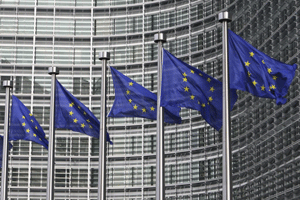
The free circulation of sentences arrives in the European Union
The Regulation that allows the recognition and direct execution of judgments in civil and commercial matters in the EU is now in force, which will save time and money for companies and consumers.
The free movement of people and capital, one of the fundamental principles of the European Union, extends its effects to Justice. Since last January 10, the Regulation regarding judicial jurisdiction, the recognition and execution of judicial decisions in civil and commercial matters has been in force, which implies the free movement and execution of sentences in the EU. Companies and consumers can now execute any ruling issued by another Member State immediately, thereby saving the costs and time that until now were invested in the double process that required the application of rulings between different territories.
The European Commission estimates that the resolution of commercial disputes between EU countries that allows automatic recognition of judicial decisions in civil and commercial matters represents a saving of 48 million euros per year for the judicial bodies of the Union and between 2,000 and 12,000 euros in each case. Currently, the Commission continues, up to 10,000 procedures can be opened each year to request the recognition of judicial decisions in civil and commercial matters in EU countries.
The Regulation abolishes the exequatur procedure, a complex and costly intermediate process to obtain recognition of sentences until now mandatory.
Thus, for example, when executing an English sentence in Spain, it was necessary to provide numerous documentation, which the Spanish court had to review to certify that all the formalities were fulfilled, for which it issued a resolution that approved this resolution, as if it were Spanish, and the executed party was notified within a period of time so that it could file an opposition. All this meant the passage of several months in this first unilateral phase, and only at the end of it could precautionary measures and the seizure of assets be requested, which represented a significant loss of effect and time for companies and citizens. Since January 10, the first exequatur request for homologation is no longer necessary; execution is directly requested, as if it were a ruling issued in Spain.
Jordi Sánchez, partner at Rousaud Costas Duran, believes that the Regulation "generates more confidence in the courts for European companies and citizens."
The expansion of judicial borders means "more protection and increases security and legal equality between EU countries," adds Sánchez. Rousaud partner Costas Duran recalls, as the new Regulation highlights, that these guidelines cannot apply court fees, which was already prevented by the previous framework, although sometimes in some lawsuits the courts required them, cases in which Sánchez recommends appealing.
Furthermore, he emphasizes that "in no case can another State review the substance of the matter, it was not done but the new norm emphasizes it."
One of the most relevant aspects of the new Regulation is the clarification of the so-called "arbitration exception." The Rules do not apply to arbitrations or to any incidental matter related to them (appointment of arbitrators, annulment or recognition of awards, a matter governed by the New York Convention).
Álvaro López de Argumedo, Uría Menéndez's lawyer, highlights that "the Regulation however leaves open the question of whether it applies to precautionary measures in support of arbitration proceedings, as until now. Uría's lawyer considers that "given that these precautionary measures have not been expressly excluded, it is reasonable to understand that they are within their scope, as confirmed at the time by the Van Uden ruling." This conclusion is important because precautionary measures benefit from automatic recognition in other Member States, unless they have been issued without a hearing of the affected party.
News in executionCases in which processes are accelerated
– The Regulation will apply in civil and commercial matters regardless of the nature of the court.
– It concentrates its effect on companies and consumers. "Judicial borders" are expanded: a consumer from any Member State will be able to access any of the EU courts.
– It does not apply to arbitrations or any incidental matter related to them, but nevertheless leaves open the question of whether it applies to precautionary measures in support of arbitration proceedings, as until now.
Conflicts that are left out of the new norm
– It will not apply to fiscal, customs or administrative issues, nor to the responsibility of the State.
– The State and the capacity of natural persons, matrimonial regimes or similar will be excluded.
– Bankruptcy and similar procedures.
– Social Security.
– Arbitration.
– Wills and inheritances.
www.expansion.com



